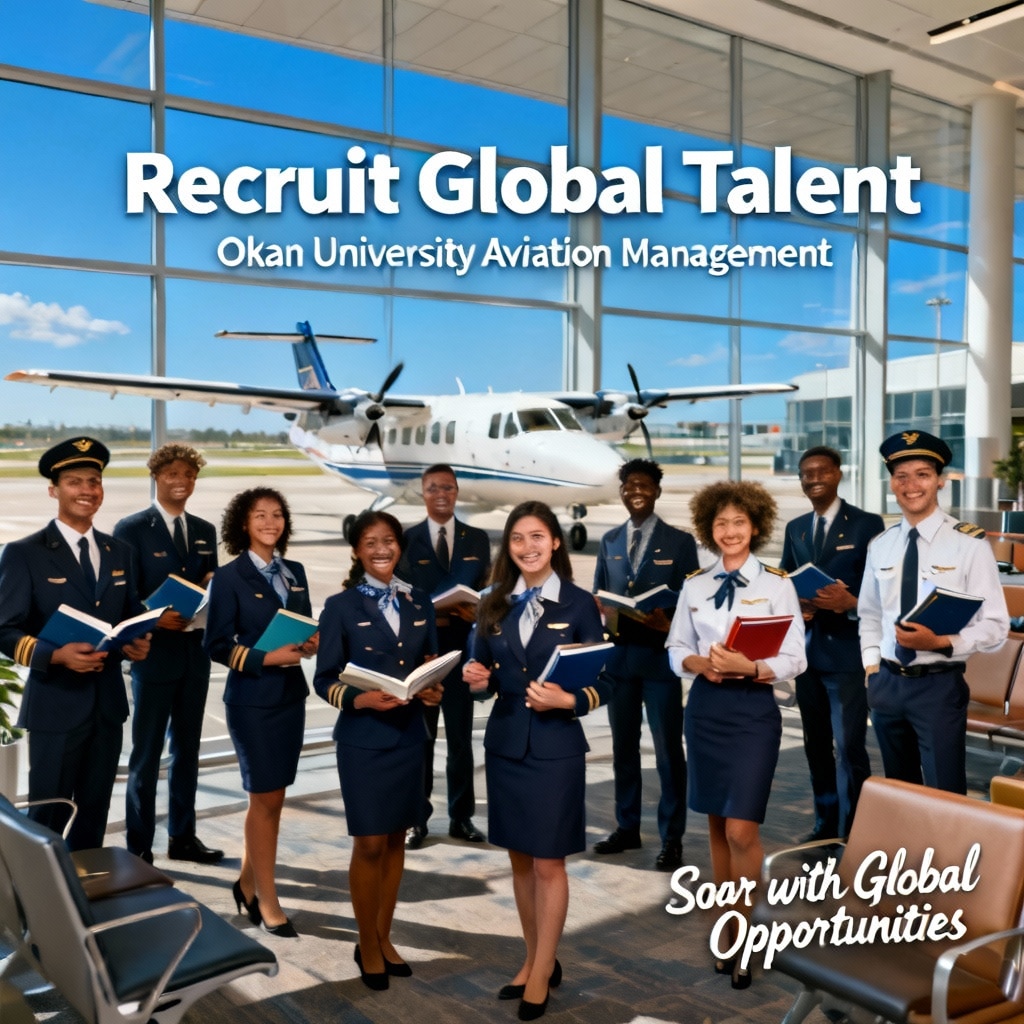Aviation Management Programs at Okan University — A Strategic Pathway for International Recruitment and Industry-Ready Graduates
Program Overview
Professional Preparation
Admission Requirements
Recruitment Strategies
Partnership Model
Actionable Checklist
Professional Preparation
Admission Requirements
Recruitment Strategies
Partnership Model
Actionable Checklist
Aviation Management Programs at Okan University
Program Overview — What Makes Okan’s Degree Stand Out
- Duration and language: A four-year undergraduate program taught fully in English, enabling smoother placement of international students into global roles.
- Faculty and administration: Administered by the Faculty of Applied Sciences, the program blends academic rigor and applied vocational training.
- International readiness: Optional foreign language instruction enhances graduates’ competitiveness across regional and international aviation markets.
- Industry alignment: Strong ties to airlines, airports, regulatory bodies, and aviation technical companies provide real-world exposure.
Core Curriculum and Competencies
The curriculum equips students across technical, regulatory, and managerial dimensions of aviation. Key modules and competencies include:
- Aviation business management: airline economics, route and network planning, revenue management, and commercial strategy.
- Civil aviation security: regulatory frameworks, risk assessment, and airport security operations.
- Occupational health, safety, and quality: safety management systems (SMS), accident prevention, and quality assurance.
- Avionics and structural analysis: basics of aircraft systems and maintenance-oriented structural awareness.
- Fundamentals of air transport and safety: aviation law, liability, and international regulations.
- Operational modules: navigation, meteorology, aircraft performance, crew resource management, and aviation theory.
Professional Preparation and Industry Integration
Practical Training and Internships
Okan University emphasizes practical training through:
- Internships and industry placements with airlines, airports, and logistics firms.
- Applied projects supervised jointly by academics and industry professionals.
- Guest lectures and workshops from active professionals in aviation operations, safety, and logistics.
Career Outcomes and Sector Fit
Graduates are prepared for a broad set of roles:
- Airline and airport management (operations, commercial, ground services)
- Civil aviation regulatory authorities and safety oversight
- Air cargo, freight forwarding, and logistics companies
- Flight planning, route management, and dispatch roles
- Aviation insurance, digital marketing, and HR for aviation companies
- Aviation systems development, consulting, and IT roles
Admission Requirements and Application Checklist
Core Application Documents
To admit international candidates for the English-taught program, Okan University requires:
- High school diploma or equivalent, translated into English or Turkish.
- Valid passport and personal photographs.
- Equivalency certificate from the Turkish Ministry of Education (necessary for formal enrollment).
- Proof of English proficiency — TOEFL or the university’s language test.
- Some applicants may also need to submit a motivation letter or participate in a personal interview.
Practical Admissions Checklist for Recruiters and Agents
- Verify and obtain certified translations of diplomas and transcripts.
- Initiate equivalency procedures early — the Ministry process can take time.
- Prepare candidate portfolios (CV, motivation letter, language scores).
- Schedule mock interviews and language readiness sessions to increase offer conversion.
How International Recruiters, Admissions Teams and Agencies Can Engage
Recruitment Strategies That Convert
- Targeted student messaging: emphasize career outcomes and internship pathways rather than course content alone.
- Partnerships with local aviation academies and secondary schools to build pipelines of technically inclined candidates.
- Host specialized webinars and virtual open days with Okan’s faculty and alumni to present real-world career stories.
Admissions and Onboarding Best Practices
- Pre-departure orientation focusing on aviation industry expectations, workplace culture in Turkiye, and safety standards.
- Language and soft-skills bootcamps (crew resource management, conflict resolution, workplace communication).
- Coordinated internship placement through industry partners to ensure students gain immediate practical exposure.
Practical Partnership Model — How Study in Turkiye Adds Value
International Recruitment Leadership
- Managing full recruitment funnels for aviation programs from lead generation to enrollment.
- Providing localized marketing campaigns in target markets to attract candidates with aviation technical backgrounds.
Admissions Process Automation
- Using automated workflows reduces administrative burden.
- Providing real-time updates to students, agents, and university admissions teams to reduce delays.
Tailored Training for Placement Success
- English and technical language support aligned to aviation workplace standards.
- Internship placement assistance via our network, increasing employability immediately after graduation.
Actionable Checklist for Recruitment and Admissions Teams
Short-Term (0–3 Months)
- Confirm application document requirements and equivalency timelines.
- Launch targeted outreach in priority markets with aviation-focused messaging.
Mid-Term (3–9 Months)
- Pre-screen candidates for internships and language readiness.
- Establish employer partnerships for guaranteed internship placements.
Long-Term (9–24 Months)
- Develop co-branded micro-credentials with industry partners.
- Monitor graduate outcomes to refine curriculum and recruitment messaging.
Take the Next Step with Study in Turkiye
Explore further opportunities to enhance your educational journey. Discover how you can become part of the vibrant academic community in Turkiye.

